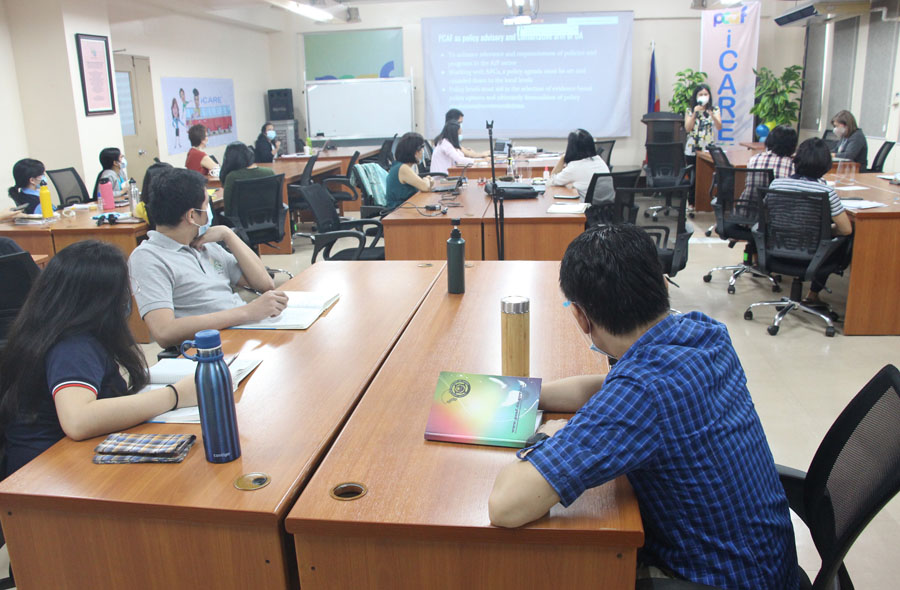
The Philippine Council for Agriculture and Fisheries (PCAF), through the Planning and Programming Section (PPS), spearheaded the staging of the Policy Agenda Setting Workshop among PCAF’s operating units on November 23-24, 2020 in Quezon City. The workshop aims to gain a common understanding and importance of policy agenda and policy briefs in achieving its Major Final Output targets.
PCAF Acting Executive Director Liza Battad in her opening remarks underscored the importance of coming up with good policy briefs that are commodity-based and value chain oriented. She also expressed her vision of sorting and classifying color-coded policy briefs produced based on the commodity for easier reference.
“A good policy brief is inclusive and aligns with the thrusts of the local and the national government, as well as the private stakeholders. Policymaking is influencing the passage of laws for the betterment of a sector or an industry,” she added.
A quick review of the policy cycle, its components, and concepts were done by PPS OIC Chief Joane Auditor. This was followed by a presentation on what is a policy brief and how to write concise yet comprehensive policy briefs by Planning, Monitoring and Knowledge Management Division (PMKMD) Chief Estrella Tulay. Her presentation provided the content/s of each component and corresponding samples and templates that the participants should include in writing policy briefs.
The participants were also grouped based on major commodities and banner programs namely: 1)Rice, 2)Livestock, Poultry, and Corn, 3)High-Value Crops, 4)Fisheries and Aquaculture, 5)Coconut, and 6) Agriculture and Fishery Mechanization. Each group was given prepared policy briefs for their review and repackaging. The repackaged policy briefs were presented and assessed by Director Battad and key officials.
Dir. Battad, who reviewed the repackaged policy briefs, emphasized the difference between the previously prepared policy briefs and the repackaged ones. The usage of action words in topics and using hanging questions, usage of the bulleted form of key points made the policy briefs easier to read to its target audiences.
She also noted that experts from concerned offices can be tapped into crafting these policies to make them more relevant and effective and to promote the spirit of collaboration and teamwork as well as the need to further improve on ensuring that policy briefs should have a particular issue to focus on.
In addition, PMKMD Chief Tulay also reminded the participants of the importance of research as well as using statistics in writing policy briefs.
“There is a lot of research involved in writing effective policy briefs. Research produces supporting data and figures which reveal the truth and reality behind these concerns which are then relayed to policymakers for appropriate actions.” she added.
In closing, Tulay thanked all participants for their commitment and active participation in the exercise. “This is a work in progress and everyone must strive to write “sound” policy briefs”. | CCB











